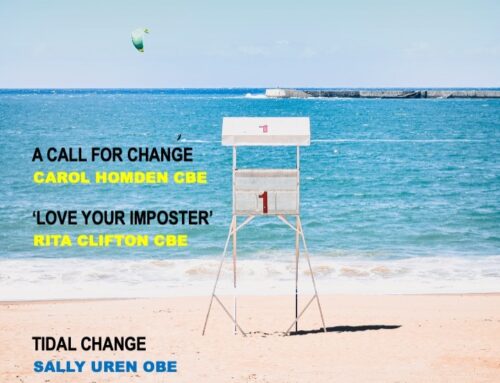Corruption and Coronavirus
As governments around the world have rushed to protect people, vast sums of money have flowed in to support Covid-19 response efforts. The development of potential vaccines, new treatments and medical technology have, as we have seen, been key recipients. The NHS in the UK reports being flooded with applications for Covid-19 related research grants – not all of them viable or investment-worthy. In the last few weeks we have also seen large sums being set aside in the UK to support people who have lost their jobs and, around the world, stimulus packages for businesses decimated as a result of the pandemic.
These efforts are to be applauded. But there is a caveat. In the stampede to find quick solutions, we risk throwing money at projects which do not achieve what they claim, or at businesses which secure public funds because of their unofficial access to government decision-makers, rather than being the best company for the job.
Now more than ever, it’s critical that governments and global organisations lead by example and maintain robust oversight to ensure that limited resources help as many as possible. The aim is not to slow down the response or to encumber business by being overly bureaucratic, but to guarantee that these funds achieve their objectives.
Key to this is ensuring there is no opportunity for corruption which can flourish in the perfect storm created by disruption, distractions and urgent need. This includes bribery, lack of transparency and back door – or “opaque” – lobbying.
We have seen this before. The role of corruption in the outbreak, spread, and containment of Ebola during the 2014 – 2016 epidemic has been well documented. International organisations like the Red Cross reported that more than US$6 million was lost to corruption and fraud during the outbreak. Funds were diverted and mismanaged. Salaries were misreported and payments for supplies were duplicated, while public services accepted bribes to allow people out of quarantine.
With Covid-19, all eyes have been on the race for a cure. With hugely lucrative contracts at stake, companies and academic researchers are developing potential vaccines at unprecedented speed. However, there are serious concerns about the transparency of this research, particularly clinical trials. Publication rates of publicly-funded clinical trials are notoriously low. Industry-funded trials fare better, but are known for being full of redacted text. Even the data itself is sometimes manipulated to produce favourable results. Both undermine transparency and, consequently, public health. Clinical trial data must be published in its entirety to support further innovation and to ensure safety and efficacy of any new Covid-19 medical tools.
We need to learn from the past. The world spent more than US$18 billion on stockpiling Tamiflu, a drug developed to treat swine flu, before it emerged four years later that the drug was no more useful than paracetamol at preventing or treating the illness. Yet, we find ourselves in the same situation with un-evidenced declarations of support for Hydroxychloroquine (an antimalarial drug) to treat Covid-19. There have already been cases of overdoses and hoarding of this drug as a result. These claims are now being tested. The results must be published in their entirety before resources and lives are put at risk.
Procurement of medicine and medical supplies is particularly vulnerable at times like these. Covid-19 aside, it’s estimated that 10-25% of all money spent in health procurement globally is lost to corruption. In the EU more than one in four health corruption cases concerns procurement of medical equipment. The bet is those figures will jump in the current health crisis.
In Brazil, it has been reported that a contract for supplying surgical masks was awarded to a company with close ties to the president. It charged up to twelve times more than market price. Others sell substandard equipment knowing governments, institutions and individuals have few other options. The government in the Netherlands had to re-call 600,000 faulty masks, which didn’t provide sufficient protection, while the Spanish government had to send back 9,000 ineffective Covid-19 test kits.
What’s the answer? Open and transparent contracting processes allow corruption to be more easily spotted, and ensure governments are charged reasonable prices. Procurement performance would be well-documented, informing future purchasing decisions. The result: more lives saved.
This is a watershed moment for health systems around the world. Once the impact of the pandemic is over, society will not only remember what governments and companies did to save lives but how they did it. We cannot rely on a fuzzy and unrealistic assumption that those with a corrupt agenda will suddenly learn the error of their ways during the response to this crisis. That’s why we cannot take our eye off the ball in the global fight against corruption.
Companies and governments that show real leadership by acting with transparency and integrity to make decisions for the benefit of public health, rather than short-term political or profit motivations, will be remembered for the way they conducted themselves during this crisis. History will not be kind to those that fail to rise to the occasion.
Daniel Bruce
Chief Executive, Transparency International UK
@DanielJBruce
@TransparencyUK
https://www.transparency.org.uk/


Corruption and Coronavirus
As governments around the world have rushed to protect people, vast sums of money have flowed in to support Covid-19 response efforts. The development of potential vaccines, new treatments and medical technology have, as we have seen, been key recipients. The NHS in the UK reports being flooded with applications for Covid-19 related research grants – not all of them viable or investment-worthy. In the last few weeks we have also seen large sums being set aside in the UK to support people who have lost their jobs and, around the world, stimulus packages for businesses decimated as a result of the pandemic.
These efforts are to be applauded. But there is a caveat. In the stampede to find quick solutions, we risk throwing money at projects which do not achieve what they claim, or at businesses which secure public funds because of their unofficial access to government decision-makers, rather than being the best company for the job.
Now more than ever, it’s critical that governments and global organisations lead by example and maintain robust oversight to ensure that limited resources help as many as possible. The aim is not to slow down the response or to encumber business by being overly bureaucratic, but to guarantee that these funds achieve their objectives.
Key to this is ensuring there is no opportunity for corruption which can flourish in the perfect storm created by disruption, distractions and urgent need. This includes bribery, lack of transparency and back door – or “opaque” – lobbying.
We have seen this before. The role of corruption in the outbreak, spread, and containment of Ebola during the 2014 – 2016 epidemic has been well documented. International organisations like the Red Cross reported that more than US$6 million was lost to corruption and fraud during the outbreak. Funds were diverted and mismanaged. Salaries were misreported and payments for supplies were duplicated, while public services accepted bribes to allow people out of quarantine.
With Covid-19, all eyes have been on the race for a cure. With hugely lucrative contracts at stake, companies and academic researchers are developing potential vaccines at unprecedented speed. However, there are serious concerns about the transparency of this research, particularly clinical trials. Publication rates of publicly-funded clinical trials are notoriously low. Industry-funded trials fare better, but are known for being full of redacted text. Even the data itself is sometimes manipulated to produce favourable results. Both undermine transparency and, consequently, public health. Clinical trial data must be published in its entirety to support further innovation and to ensure safety and efficacy of any new Covid-19 medical tools.
We need to learn from the past. The world spent more than US$18 billion on stockpiling Tamiflu, a drug developed to treat swine flu, before it emerged four years later that the drug was no more useful than paracetamol at preventing or treating the illness. Yet, we find ourselves in the same situation with un-evidenced declarations of support for Hydroxychloroquine (an antimalarial drug) to treat Covid-19. There have already been cases of overdoses and hoarding of this drug as a result. These claims are now being tested. The results must be published in their entirety before resources and lives are put at risk.
Procurement of medicine and medical supplies is particularly vulnerable at times like these. Covid-19 aside, it’s estimated that 10-25% of all money spent in health procurement globally is lost to corruption. In the EU more than one in four health corruption cases concerns procurement of medical equipment. The bet is those figures will jump in the current health crisis.
In Brazil, it has been reported that a contract for supplying surgical masks was awarded to a company with close ties to the president. It charged up to twelve times more than market price. Others sell substandard equipment knowing governments, institutions and individuals have few other options. The government in the Netherlands had to re-call 600,000 faulty masks, which didn’t provide sufficient protection, while the Spanish government had to send back 9,000 ineffective Covid-19 test kits.
What’s the answer? Open and transparent contracting processes allow corruption to be more easily spotted, and ensure governments are charged reasonable prices. Procurement performance would be well-documented, informing future purchasing decisions. The result: more lives saved.
This is a watershed moment for health systems around the world. Once the impact of the pandemic is over, society will not only remember what governments and companies did to save lives but how they did it. We cannot rely on a fuzzy and unrealistic assumption that those with a corrupt agenda will suddenly learn the error of their ways during the response to this crisis. That’s why we cannot take our eye off the ball in the global fight against corruption.
Companies and governments that show real leadership by acting with transparency and integrity to make decisions for the benefit of public health, rather than short-term political or profit motivations, will be remembered for the way they conducted themselves during this crisis. History will not be kind to those that fail to rise to the occasion.
Daniel Bruce
Chief Executive, Transparency International UK
@DanielJBruce
@TransparencyUK
https://www.transparency.org.uk/





